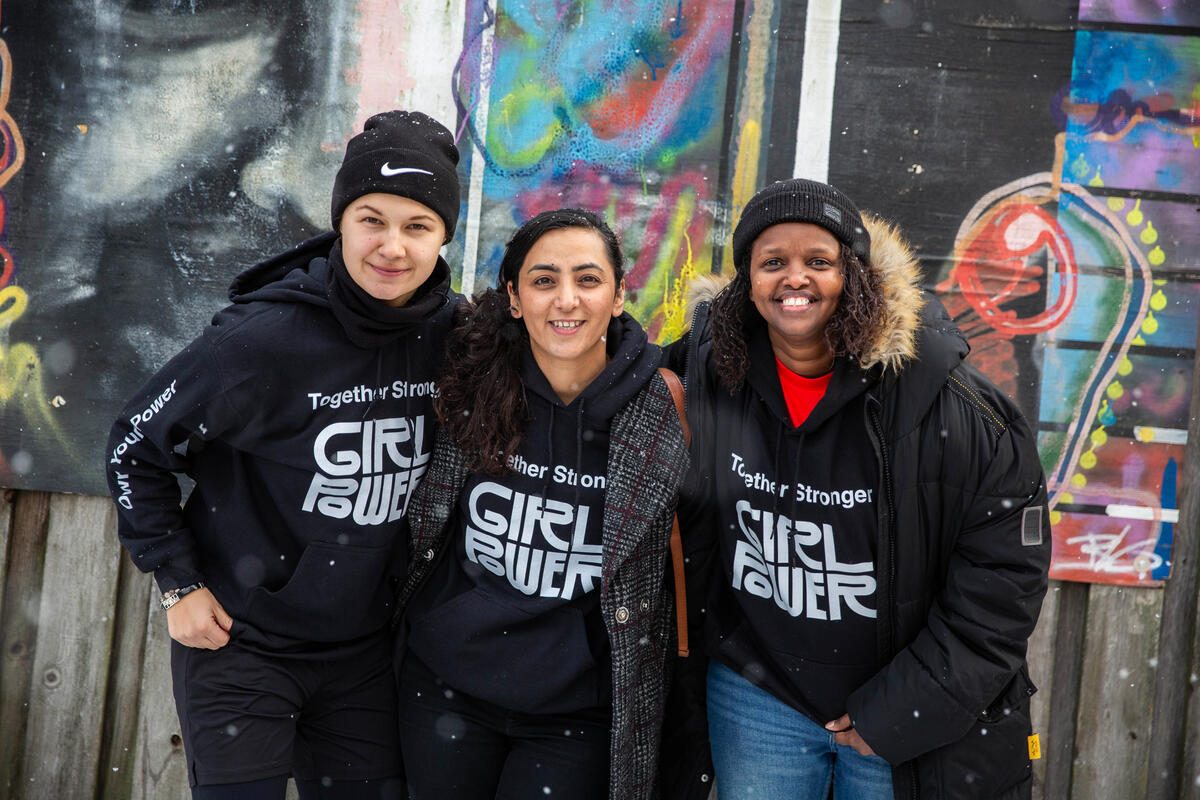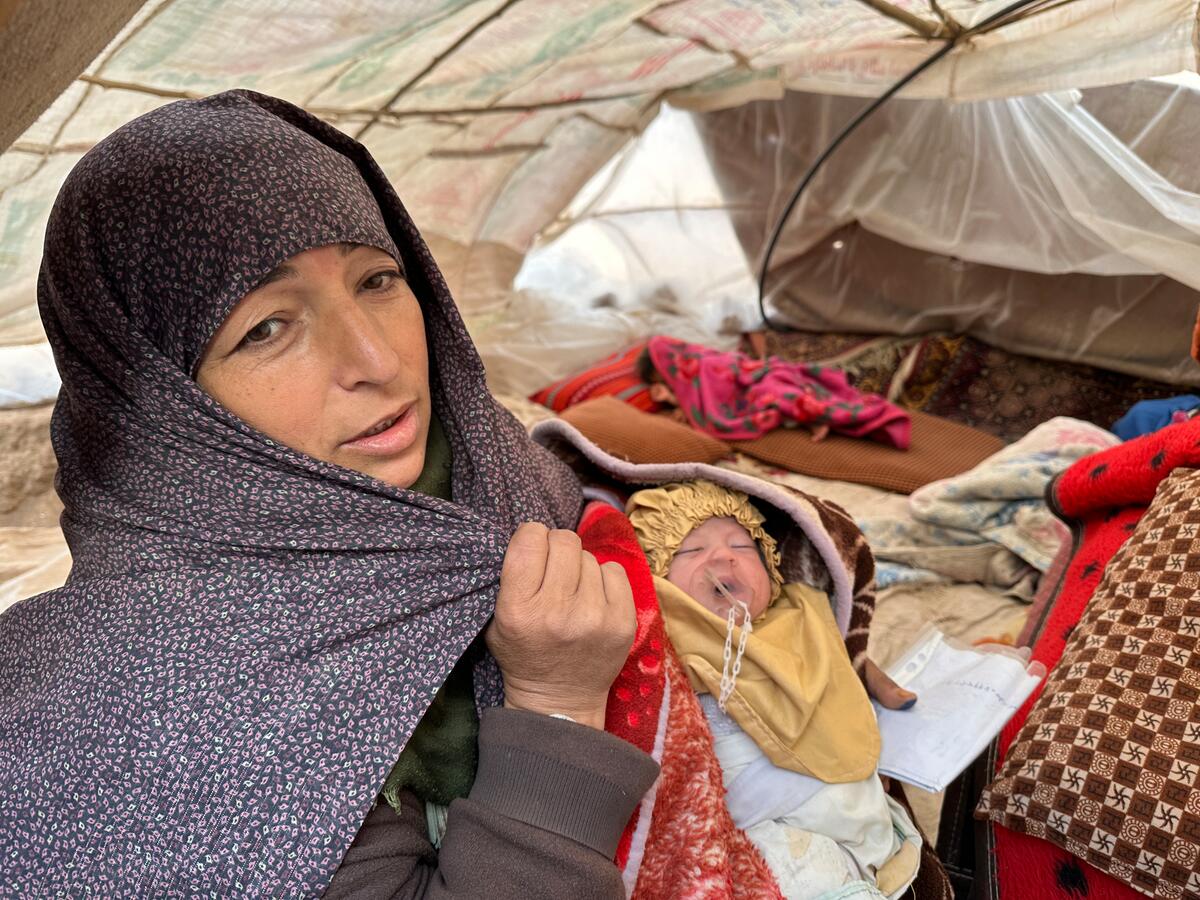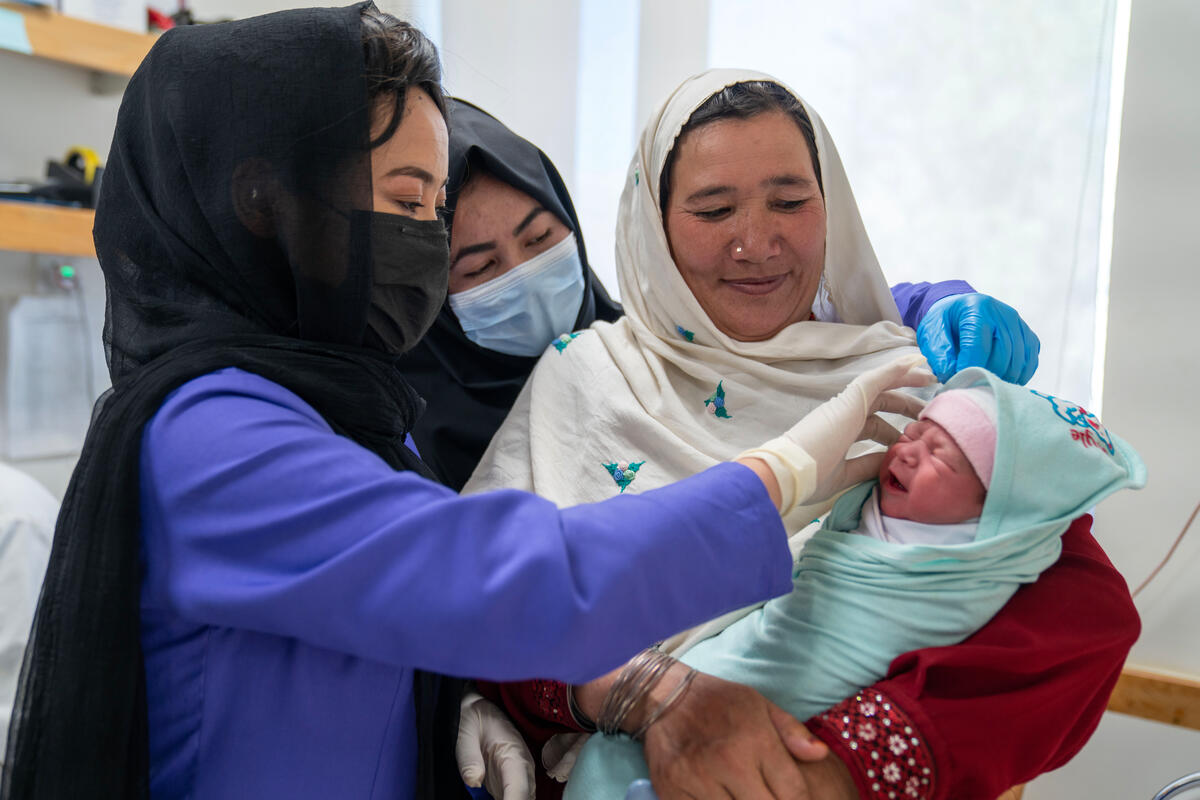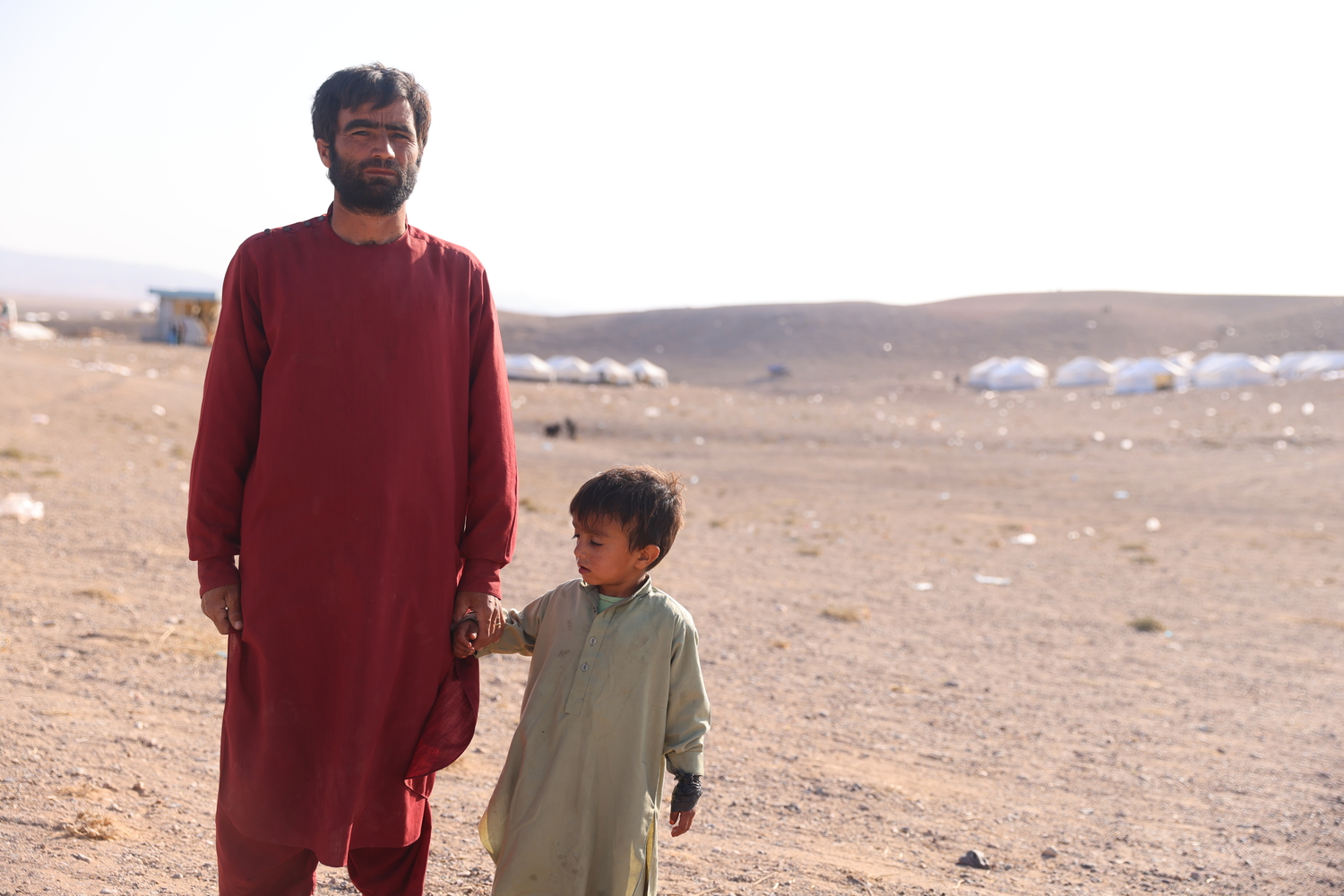UNHCR begins transferring refugees to new camps in Pakistan
UNHCR begins transferring refugees to new camps in Pakistan
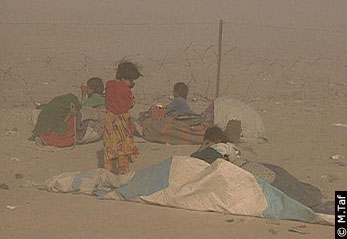
ROGHANI CAMP, Pakistan, Nov. 12 (UNHCR) - A major operation to transfer tens of thousands of Afghan refugees to new, more adequate sites in Pakistan was set to resume Monday following Sunday's opening of the Roghani camp, where the first 244 people arrived by convoy from the Killi Faizo staging site near the Afghan border.
Roghani is the first of several camps to be opened in Pakistan since a new wave of Afghans began fleeing their homes following the September 11 terrorist attacks on the United States and the subsequent military campaign in Afghanistan.
Meanwhile, UNHCR Sunday began airlifting thousands of tents and plastic sheets to Uzbekistan. An Ilyushin-76 cargo plane landed in Termez carrying 45 tons of tents for possible use inside Afghanistan.
The airlift to Uzbekistan will consist of at least six flights and will bring supplies from UNHCR stockpiles in Peshawar, Pakistan. In all, the airlift is scheduled to transfer 4,000 tents and 4,000 plastic tarpaulins for possible use inside Afghanistan.
"UNHCR has been pre-positioning tons of humanitarian supplies throughout the region for the past two months in anticipation of possible refugee movements from Afghanistan to neighbouring states, as well as for use inside Afghanistan as part of possible UN cross-border operations," the agency said Sunday in a statement.
The transfer of the refugees from Killi Faizo to Roghani will make room for more vulnerable refugees - including women, children, the sick and elderly - to enter the staging site and receive temporary protection and assistance. In addition to freeing more space, the transfer "will also ease security concerns associated with Killi Faizo's location adjacent to the border," UNHCR said.
On Sunday, UNHCR and its partners in the operation, including Médecins Sans Frontières, Oxfam, and Concern, were busy erecting tents, preparing water systems and latrines, grading roads and erecting portable warehouses. The agency said it has 2,000 tents stockpiled near the site ready for use as needed.
The refugee agency said over the weekend that a total of 11 new sites are ready in Pakistan, including three in southern Baluchistan Province and another eight in North-West Frontier Province.
Following an agreement with the Pakistan government, the sites will be available to three categories of refugees despite the fact that the border with Afghanistan remains officially closed.
The first category consists of the vulnerable refugees allowed to cross the border because of their weak condition. Second, the tens of thousands of refugees living in the makeshift New Jalozai camp near Peshawar. Finally, the estimated 135,000 so-called invisible refugees who managed to enter Pakistan since September 11 through back roads and mountain passes and have either settled in with other refugee families or disappeared into big cities.
"Fearing deportation if caught, many Afghans in the latter group have been living a very precarious existence in old refugee camps or in Peshawar, Quetta, and other cities," UNHCR said. "These Afghans will now be allowed to enter the new camps, where they can receive adequate assistance and temporary protection until it is safe to return home."
The agency said the first relocation of the three categories of refugees is set to begin Wednesday in North-West Frontier Province. Refugees from New Jalozai will be transferred to the Kotkai refugee site near Bajaur Agency. About 500 refugees are scheduled to be moved daily to Kotkai, which has a capacity for 20,000 persons. If more refugees request the transfer, new sites will be opened to house them, the agency said.
Governments continue to donate money for UNHCR's Afghanistan Emergency Operation. Venezuela last week gave $1 million, bringing total cash contributions as of November 10 to $57.6 million. Other major contributors include The United States, $14 million; Italy, $7.1 million; Germany, $5.1 million; The Netherlands, $5 million; Norway, $3.9 million; Japan, $3.4 million; and Denmark, $3.3 million.


